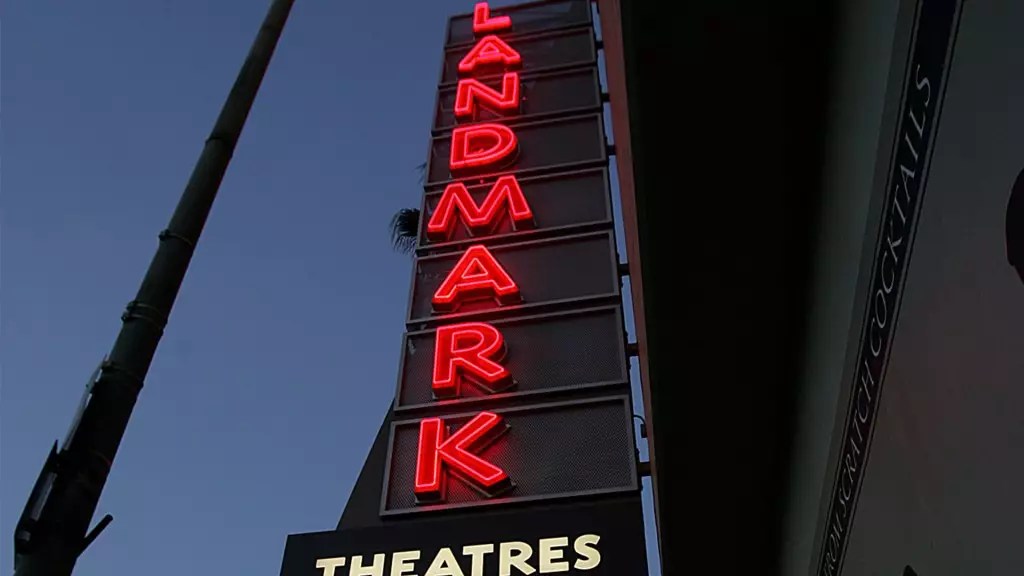The recent events surrounding Landmark Theatres reflect the broader challenges faced by the cinema industry in the wake of the COVID-19 pandemic, increasing interest rates, and labor disputes. As disclosed in a deposition by owner Charles Cohen during ongoing litigation with Fortress Credit Corp, the financial health of Landmark has deteriorated dramatically. With market values diminishing by hundreds of millions of dollars, Cohen’s testimony portrays a grim picture of an industry attempting to navigate through a perfect storm of financial pressures and changing consumer behavior.
The litigation against Cohen elucidates a crucial moment for Landmark Theatres. The New York State Supreme Court’s ruling that Cohen defaulted on a loan, prompting an impending auction of properties, signals the precarious state of not only Landmark but potentially the arthouse theater segment as a whole. The auction, set for November 8, looms over Cohen like a ticking time bomb, potentially marking the end of an era for a brand that has long served niche audiences hungry for independent films.
Cohen’s deposition highlights significant losses, with Landmark reporting a staggering negative revenue of over $14 million. The waves of financial strain have been exacerbated by external economic factors. The COVID-19 pandemic forced theatres to close their doors, and even as restrictions lifted, audiences were slow to return. The added pressures of high-interest rates have compounded these challenges, making it increasingly difficult for cinemas to manage existing debts while seeking to recapture audiences.
Moreover, the continued turmoil within Hollywood, driven by labor strikes—both actors and writers—has disrupted film production, inhibiting the flow of new content. These strikes halted the pipeline of films that are essential to draw audiences back into theaters, leaving venues like Landmark struggling to fill seats. Cohen pointedly noted that the industry is still grappling with these disruptions, underlining the fragile recovery phase of cinema as it seeks to redefine its relationship with viewers in an era dominated by streaming services.
As legal actions unfold, Fortress Credit Corp is not merely seeking repayment; it is employing strategies to ensure that personal assets belonging to Cohen are shielded from potential loss. The firm’s request to restrain Cohen from transferring his assets illustrates the desperation of lenders to recover as much as possible from a failing business model. The shocking revelation that Cohen allegedly transferred over $70 million in assets, including a $20 million house and luxury boats, raises questions about the ethics of corporate governance and personal accountability.
This behavior, if true, could illustrate a worrying trend among executives facing financial hardship—prioritizing the protection of personal assets over the business’s wellbeing. Such actions can erode trust and confidence among investors and lenders, potentially exacerbating the existing financial crises. Ethically, the theater industry demands transparency and commitment, especially from those in leadership positions. The opacity surrounding these asset transfers poses risks not only to Cohen personally but also to the broader perception of Landmark as a responsible business entity.
Despite the dire situation, there remains a sliver of hope for Landmark Theatres. Representatives echo Cohen’s commitment to keeping Landmark afloat, indicating that discussions around a potential settlement with Fortress Credit are ongoing. This willingness to negotiate suggests that there may be opportunities yet to explore—for restructuring the debts and redefining the operational strategy of Landmark.
The theater industry must act swiftly to recalibrate its approach, focusing on attracting a new generation of moviegoers while reaffirming its commitment to quality arthouse programming. Engaging with audiences through creative marketing strategies, combined with a rethink of the theatrical experience itself—perhaps through revamped venues or hybrid release models—could serve as potential lifelines.
While the challenges are formidable, they may also catalyze innovation within the industry. As Landmark grapples with its significant hurdles, the broader cinema landscape must watch closely, assessing not only the decisions made by its leaders but the future of film exhibition itself. The ongoing story of Landmark, shaped by resilience and adaptation, may ultimately serve as a blueprint for how arthouse cinemas can survive and thrive in changing times.


Leave a Reply